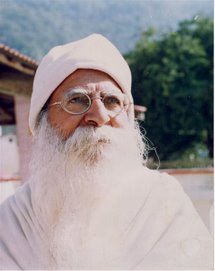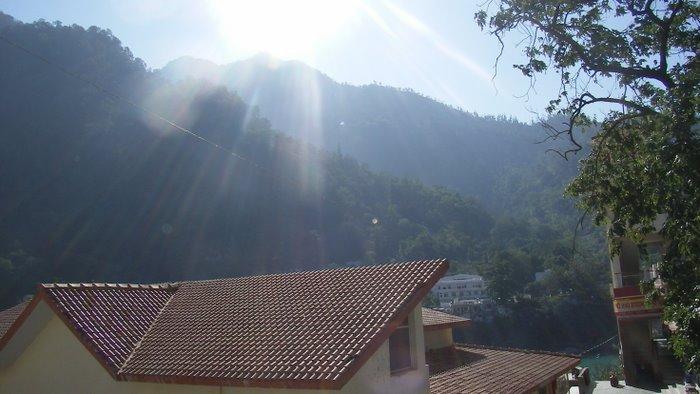
On the calendar of religious festivals in India there is to be found a special festival, Guru Purnima, devoted to the Master, called Guru in that country. This festival is celebrated every year at full moon in the Hindu month of Ashad throughout India and in Hindu temples across the world. This year, at Sacha Dham, Maharajji’s ashram in Rishikesh, it will be celebrated on Monday, 30th July.
On this occasion, disciples from all over India and even from abroad will participate. On that day, there will be a ceremony in the ashram temple and Maharajji will deliver a message to all his disciples. The ceremony will end with the blessings which the holy Master will shower on all, present or absent.
It is highly recommended that we inwardly connect ourselves to this ceremony and to Maharajji on that special day.
On this occasion, disciples from all over India and even from abroad will participate. On that day, there will be a ceremony in the ashram temple and Maharajji will deliver a message to all his disciples. The ceremony will end with the blessings which the holy Master will shower on all, present or absent.
It is highly recommended that we inwardly connect ourselves to this ceremony and to Maharajji on that special day.
Why is there Such a Festival?
From a historical and traditional point of view, this festival is celebrated in memory of the great Instructor and Master, Vyasa who, it is said, wrote the Vedas and certain other important books of the Hindu Scriptures. Vyasa, also called Veda-Vyasa, has thus become the Guru of Hinduism. Later on, this festival was held to honour all the Gurus who, from age to age continue to spread divine light for the benefit of all beings.
The word “Guru” (Master ), is formed from two syllables of which the first “Gu” means “darkness”, “ignorance”, and the second “Ru” meaning “light”. The word “Guru” therefore means the one who dispels darkness and brings light.
Destructive Doubt
One often hears this question: Why is it that in India there are many saints and through all the ages, without exception, contrary to other parts of the world? In fact, one of the main explanations is to be found in this special relationship which Indians have with their Master, their Guru. Indeed, for Indians who are just as monotheistic as those who claim to be so in other parts of the world, God, who is inaccessible in His transcendance (Parabrahman is the Absolute, the transcendent One), manifests Himself fully through those who have attained spiritual realization, so as to be accessible to men. Consequently, for a Hindu, the Master, the Guru represents the living incarnation of the Divinity.
This attitude creates in the student a true link of confidence and firm faith in his Instructor. The effect of this is that the disciple more easily has access to the soul of the Master, for there is a spiritual law according to which, if a believer or a disciple doubts his Master or any Divinity, he can never create a spiritual relationship with him. Why is that so? It has been explained that doubt raises an impassable barrier between the disciple and the Master (or the Divinity). From the time a barrier is created, the light from the Master cannot reach the one who doubts, and so he remains in darkness. There is a good reason why Scriptures in all religions have always recommended that the believer have faith. It was not at all because there was the desire to have submissive people, who never thought about what they were told, but on the contrary is was so that people would not raise a barrier between them and the Divinity. One who doubts can follow all the yogas and disciplines he likes, but this will be to no avail for each spiritual discipline is not only a set of techniques, but also a psychic and spiritual link which connects the Master and the disciple.
Consequently, when, through faith, confidence and sadhana, the disciple gains access to the Master’s soul, the latter can transfer directly to him his own light and knowledge on the subtle planes.
Masters Act According to the Law of Harmony
Does one find elsewhere than in India disciples with the same attitude of confidence and faith in their Master? In these regions other than in India, does the society acknowledge the existence of Masters? Do they not try systematically to discredit anyone who calls himself a spiritual teacher? Isn’t he often suspected of being an imposter or a person trying to live at the expense of others? Unfortunately, the few cases of fraud are seen as being the rule and today in certain countries, the word “spirituality” itself is looked upon with suspicion. It is therefore not surprising that those regions of the world do not produce as many Masters, and the very few ones who incarnate there are obliged to work anonymously.
Masters act according to the law of harmony. A Master manifests himself in a place where the spiritual atmosphere is conducive to his physical existence from the vibratory point of view on one hand, but also that of his spiritual work on the other. He cannot carry out his work where no open hearts aspire to infinity. No doctor would want to operate a sick person in a place full of germs. Thoughts of suspicion, doubt and mistrust towards a Master are like germs and cannot attract him for they are very inharmonious. And do not count on him to waste his time justifying who he is. He will only shake the dust off his feet and go far away from there.
The Bridge of Confidence and Faith
If, on the other hand there is faith, if there is confidence, and if, added to this there is a sincere effort to seriously follow one’s sadhana, then one has started off on the highway to spiritual enlightenment. Faith alone is not enough, but without it, nothing can be done.
All those who have read the Gospels remember that Lord Jesus Christ insisted on one having firm faith. We remember the example of how Peter, who was walking quite well on the water as his Master had told him to, started to sink as soon as he became afraid (Matthew 14:25-33). We also remember the story of Bartimaeus, the blind beggar who, with faith, asked Jesus to heal him. Jesus did so saying “Go your way, your faith has made you well” and he immediately recovered his sight. (Mark 10:46-53)
The Bhagavad Gita, in chapter 4, verses 39 and 40 stresses :
"The man who is full of faith, who is devoted to it, and who has subdued all the senses, obtains (this) knowledge; and, having obtained the knowledge, he goes at once to the supreme peace.
The ignorant, the faithless, the doubting self proceeds to destruction; there is neither this world nor the other nor happiness for the doubting."
Hindus who have understood these spiritual laws for millenniums know, and rightly so, the place of the Master on the Earth, and they are right to consider that God is the Guru and that the Guru is God. This can seem shocking to certain people, but in the long run, which other country has seen as many saints as India? Hasn’t this country’s practice proved to be effective? Time alone decides what the value of each thing in the world is...



No comments:
Post a Comment